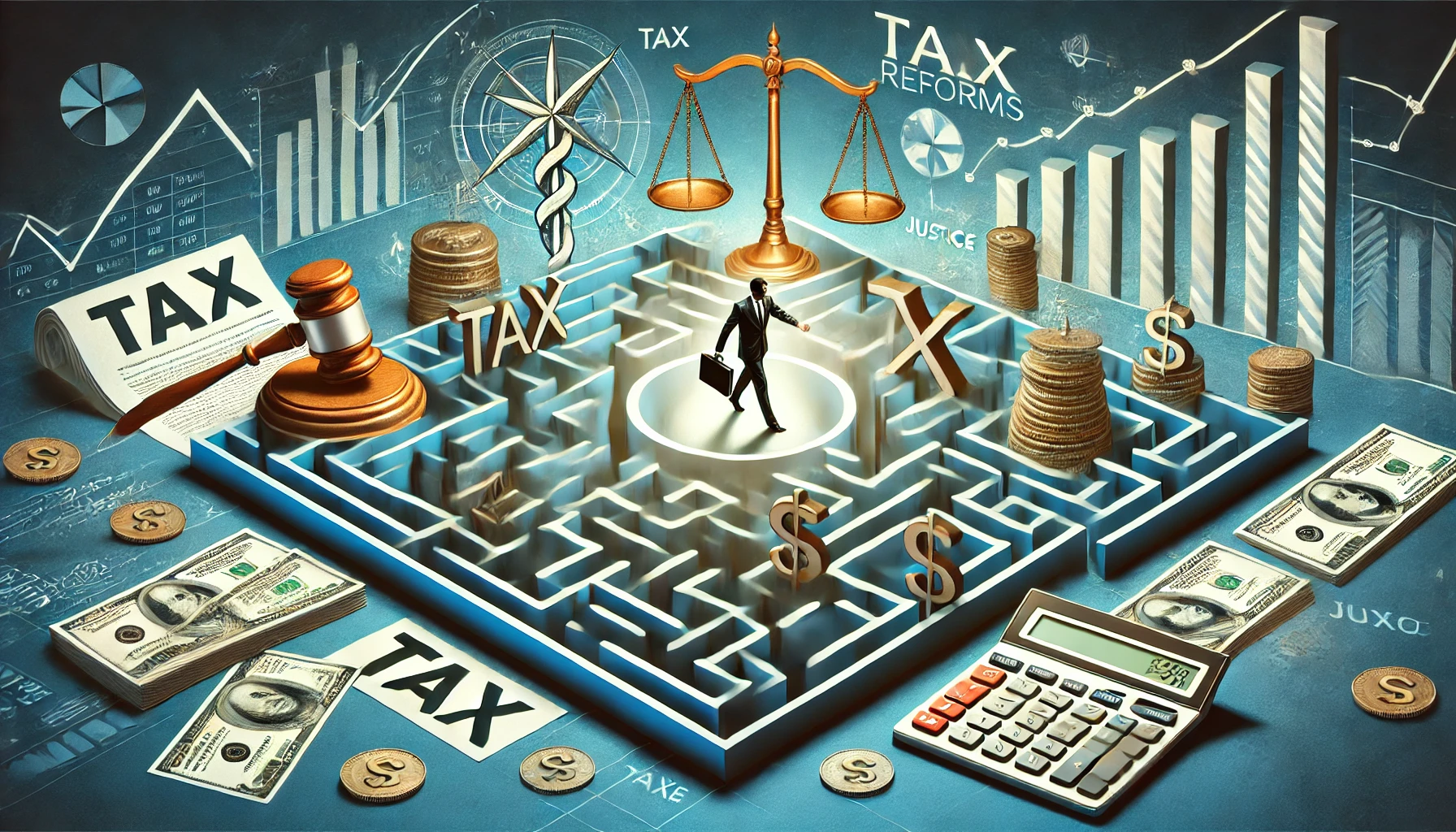Taxation is the pillar of every economy, powering public services, infrastructure, and social welfare schemes. But tax legislation is as convoluted as it is vital, and it ends up in legal confrontations that determine fiscal patterns. This blog discusses milestone taxation cases, uncovering their practical implications and lessons for businesses and individuals.
One of the most engrossing tax battles in India was the Vodafone International Holdings B.V. v. Union of India case, a fight that challenged the very basis of cross-border taxation. In 2007, British telecom major Vodafone bought a 67% stake in Hutchison Essar Limited, an Indian telecom firm, in an offshore deal valued at around $11 billion. The transaction was designed in such a manner that it avoided direct taxation in India. Indian taxmen maintained that Vodafone was tax payable on the capital gains, since the underlying assets were held in India. Vodafone countered that the transaction occurred between two overseas companies, rendering it as a non-taxable transaction for India. The Supreme Court supported Vodafone’s cause in 2012 and upheld that India did not have the jurisdiction on the deal. Yet, in a surprising twist, the Indian government retroactively modified tax legislations, allowing the government to tax equivalent offshore deals. This initiated international debates on the predictability of taxation and foreign investment.
The case of Vodafone is noteworthy because it brought up issues of retrospective amendment in tax legislation, and thus investor uncertainty. Retrospective taxation can have effects on business choices since it may lead firms to revisit their investment in a nation. India, being aware of the adverse consequences, eventually repealed the retrospective tax act in 2021 to restore investor confidence.
Vodafone International Holdings B.V. v. Union of India, (2012) 6 SCC 613.
Corporate taxation has forever been a battle between governments and multinational corporations. The European Commission’s high-profile lawsuit against Apple Inc. unveiled the loopholes in global tax regulations. The European Commission (EC) discovered in 2016 that Apple had received illegal state aid from Ireland, permitting it to pay an incredibly low effective tax rate of less than 1% on its profits in Europe. The EC ordered Apple to pay €13 billion in unpaid taxes. Apple and Ireland vehemently opposed the decision, contending that their tax agreement was legitimate under Irish laws. The General Court of the European Union ruled in Apple’s favor in 2020, stating that the EC was unable to demonstrate that Ireland provided selective economic advantages. This case highlighted the international battle to establish a just and standard tax policy while limiting corporate tax evasion.
Apple’s case emphasizes the difficulty in regulating multinational corporations that are spread across various tax jurisdictions. Numerous technology companies, such as Google and Facebook, have faced allegations of using tax havens to reduce their tax burden. The OECD’s Base Erosion and Profit Shifting (BEPS) program is intended to counter such practices by ensuring that profits are taxed where economic activities take place.
European Commission v. Apple Inc., Case T-778/16 & T-892/16 (2020).
All tax-saving measures are not illegal, but where do we set the limit between intelligent planning and illegal evasion? The McDowell & Co. Ltd. v. CTO (1985) case in India gave a defining response. The court held that tax planning is legal, but any scheme intended solely to avoid taxes is not legitimate. This ruling strengthened the legal framework, not allowing companies to take advantage of loopholes for excessive tax benefits.
The judgment highlighted that taxpayers are free to cut their tax bills through ethical means, but they can’t adopt fraudulent approaches. It established a precedent for tax authorities to investigate aggressive tax avoidance schemes. The principle continues to hold today as governments across the globe clamp down on tax evasion.
McDowell & Co. Ltd. v. CTO, (1985) 3 SCC 230.
The above cases bring out the intricacies, debates, and implications of taxation. Governments strive to maintain tax compliance, while individuals and companies aim to reduce liabilities within the confines of the law. Achieving the optimal balance between economic development and equitable taxation is a persistent challenge in the modern global economy. Keeping up with these landmark cases assists taxpayers in understanding the complex tax environment while protecting their rights and obligations.
Taxation legislation is constantly changing as governments unveil new policies to counter new challenges. As a result of the growth of the digital economy, nations are imposing Digital Services Taxes (DST) to make tech companies pay their share. The OECD-led global minimum tax proposal seeks to put a uniform corporation tax rate at 15%, limiting the attractiveness of tax havens.
The taxation function in social welfare cannot be ignored. Efficient tax systems finance healthcare, education, and infrastructure, which leads to economic stability. Excessive taxation, however, discourages investment and innovation. Policymakers must therefore balance revenue collection and economic growth.
Finally, taxpayers must be their own watchdogs and be proactive. Familiarity with tax legislation, the use of legitimate deductions, and adherence to rules can prevent legal entanglements. For companies, being aware of worldwide tax law reforms is essential in ensuring compliance and avoiding large penalties.
References:
1. Vodafone International Holdings B.V. v. Union of India, (2012) 6 SCC 613.
2. European Commission v. Apple Inc., Case T-778/16 & T-892/16 (2020).
3. McDowell & Co. Ltd. v. CTO, (1985) 3 SCC 230.
4. Indian Income Tax Act, 1961.
5. OECD Reports on Corporate Tax Avoidance, 2016.
6. European Commission Official Reports on State Aid Investigations, 2016-2020.
7. Kanga & Palkhivala, The Law and Practice of Income Tax, LexisNexis.
8. Singhania, Vinod K., Direct Taxes Law & Practice, Taxmann Publications.
9. Chaturvedi & Pithisaria, Income Tax Law, LexisNexis.
Websites:
• https://cleartax.in
• https://www.ipleaders.in
• https://www.incometaxindia.gov.in
• https://ec.europa.eu/competition
• https://www.oecd.org/tax/beps/
BY….
ANNU
B.A LL.B ,4th YEAR
LOVELY PROFESSIONAL UNIVERSITY




